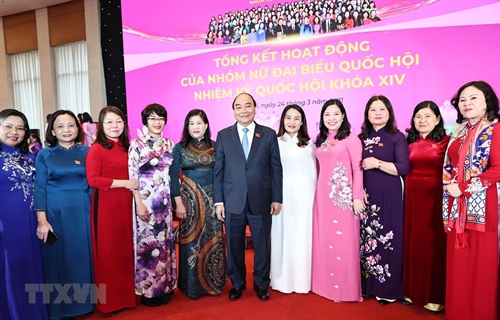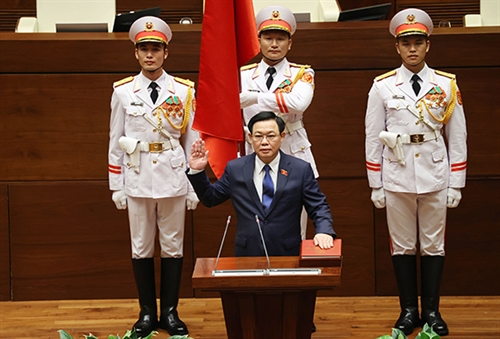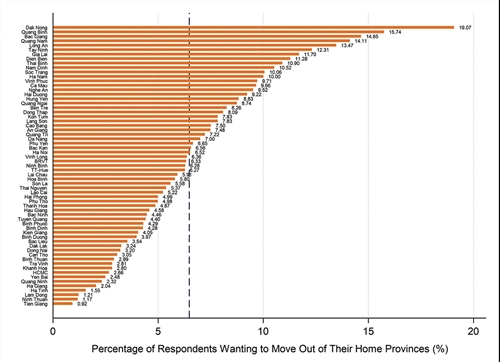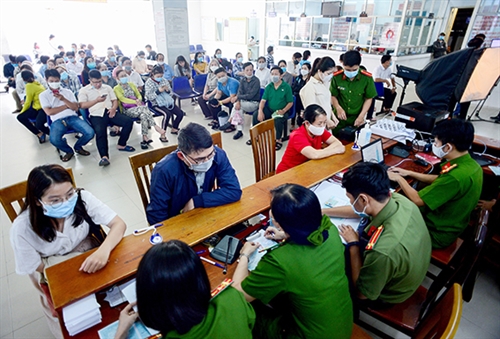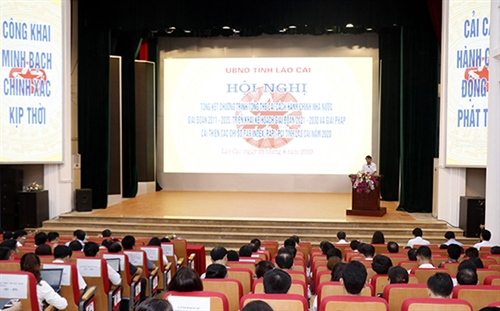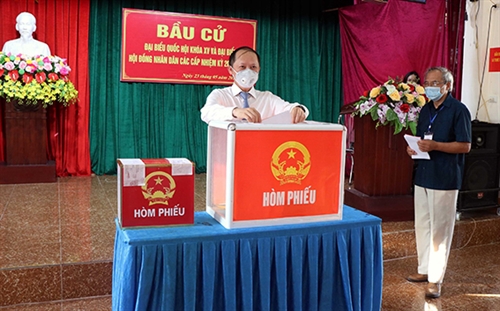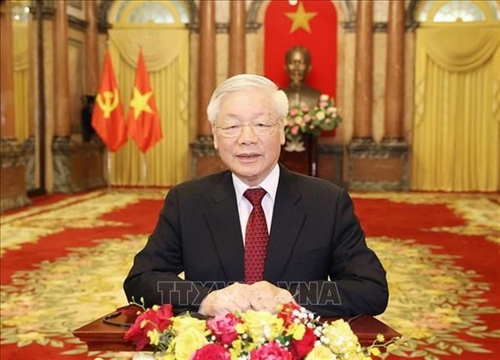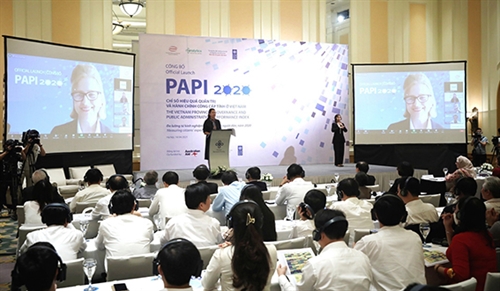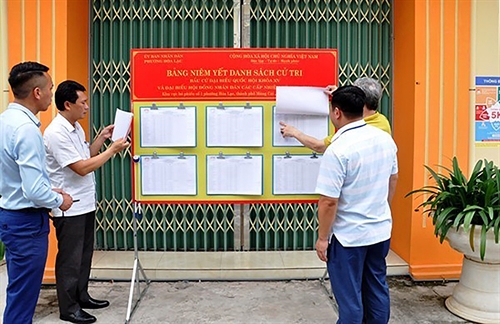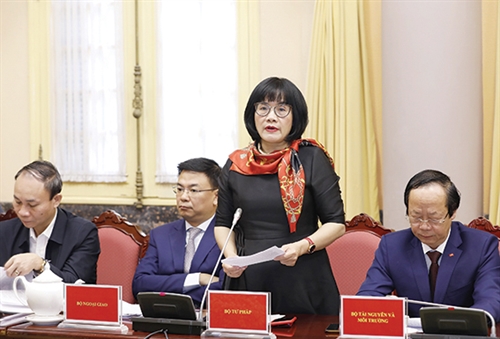With its foreign policy of peace, independence, self-reliance, respecting and committing to the principles and noble objectives of the United Nations (UN), Vietnam wishes to make more contributions to the common efforts of the international community in upholding international law and the UN Charter and promoting the role of the UN and multilateral institutions, especially in the maintenance of international peace and security. This article reviews Vietnam’s efforts in fulfillment of the UN’s common goals of maintenance of international peace and security as well as its guidelines, policies and actions on the issue.
Nguyen Huu Phu[1] and Mai Ngan Ha[2]
Vietnam’s policies as contributions to multilateralism and efforts to maintain international peace and security
Vietnam has key interests in maintaining the environment of peace and stability for national development. Hence, since the 7th National Party Congress in 1991, Vietnam’s foreign policy has incrementally developed toward independence, self-reliance, multilateralization and diversification under the motto of “befriending all countries in the international community, striving for peace, independence and development”[3], aiming to “firmly maintain peace, expand relations of friendship and cooperation, create favorable international conditions for the cause of socialist construction and national defense while actively contributing to the world people’s common struggle for peace, national independence, democracy and social progress”[4].
The task of national construction and defense is closely associated with the task of creating and consolidating the international environment of peace and stability. This policy has been stated in the 2013 Constitution. At its 13th National Congress, the Party renewed the requirement to raise the efficiency of external activities and active international integration in order to firmly maintain the environment of peace and stability, thus facilitating national development, setting the task of “proactive participation in and promotion of Vietnam’s role at multilateral mechanisms, especially ASEAN and the UN, etc.,” and “proactively participating in, actively contributing to, and heightening Vietnam’s role in, building and forming multilateral institutions”[5]. Therefore, Vietnam has strongly supported multilateral cooperation, with the UN as the center, with a view to promoting sustainable development, addressing the climate change issue, building inclusive societies, and protecting and promoting human rights.
With the success of “doi moi” (renewal) cause and the materialization of millennium development goals, Vietnam has committed to achieve the sustainable development goals, particularly poverty elimination, gender equality, quality education, better healthcare services and welfare for all people, inclusive growth, and inequality reduction. Taking the lead with the initiative of “unity of action”, Vietnam has made substantive contributions to the UN’s endeavors to reposition its development system at national level, aiming to increase the operational effect and efficiency. Throughout its 2008-09 term as a non-permanent member of the UN Security Council, Vietnam had made active and constructive contributions with respect to various issues related to regional conflicts, post-conflict reconstruction, and international terrorism, review of sanctions, peacekeeping operations, and heightening the transparency of the UN Security Council.
As the chair of the UN Security Council, Vietnam has made such prominent contributions as drafting and promoting the adoption of Resolution 1889 on women and peace and security; initiating the consultation with all UN members outside the UN Security Council on the latter’s annual reports before the General Assembly. In addition, Vietnam joined important policymaking bodies of the UN like the Human Rights Council for the 2014-16 term, the Economic and Social Council for the 2016-18 term, and the UNESCO Executive Board for the 2015-19 term.
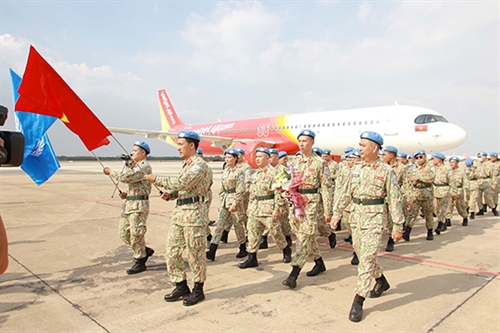 |
| Staff members of Vietnam’s Level-2 Field Hospital No. 3 to South Sudan at the send-off ceremony held in Hanoi on October 12__Photo: Thanh Vu/VNA |
On that basis, the Party Central Committee’s Secretariat issued Directive 25-CT/TW on accelerating and heightening multilateral diplomacy toward 2030. The first-ever directive on multilateral diplomacy aims “to play the core and conducive or conciliatory role at multilateral forums and organizations of strategic importance to the country” as suitable to Vietnam’s capacity and conditions. The partners of priority in multilateral diplomacy include ASEAN, the UN, and Asia-Pacific cooperation frameworks, including also sub-regional cooperation. Meanwhile, economic cooperation is pinpointed as the center of priority in order to increase the concerted strength of the nation. Multilateral diplomacy in the fields of social affairs, environment, education and training, science and technology, culture, healthcare and others will be qualitatively heightened. Especially, in the political, national defense and security fields, multilateral diplomacy should serve the key interests of maintaining the environment of peace and stability, increasing security linkage, stability and development of Vietnam in the regional context, promoting the observance of international law, settling conflicts by peaceful means, contributing to the settlement of issues of mutual concern and, response to global challenges.
In the 2020-21 term as a non-permanent member of the UN Security Council, Vietnam had given special priorities[6] to: (i) conflict prevention, preventive diplomacy, pacific settlement of conflicts and promotion of the implementation of Chapter VI of the UN Charter; (ii) reform of working methods of the UN Security Council, enhancement of the role of regional organizations under Chapter VIII of the UN Charter; (iii) protection of civilians and essential infrastructures in armed conflicts; (iv) women, peace and security, children in armed conflicts; and (v) redress of the aftermath of conflicts, particularly the handling of explosives, bombs and mines in service of reconstruction and socio-economic development; (vi) peacekeeping activities of the UN; and (vii) impacts of climate change on peace and security.
In the recent past, Vietnam has made great efforts to contribute to maintaining international peace and security in the fields of disarmament, enforcement of resolutions of the UN Security Council, promoting the progressive development of international law and giving prominence to measures for peaceful settlement of international disputes.
Vietnam’s efforts in the field of disarmament
Vietnam adopts the consistent policy of supporting the non-proliferation then complete and absolute disarmament of weapons of mass destruction (WMDs). Vietnam also holds that the non-proliferation of WMDs must conform to international law and not obstruct normal trade and economic activities. At the same time, Vietnam upholds the standpoint that countries are entitled to research, develop, use and transfer nuclear, chemical and biological technologies for peaceful purposes. Vietnam has acceded to and in good faith performed its obligations toward almost all important treaties in this field, such as the 1968 Nuclear Non-Proliferation Treaty; the 1996 Comprehensive Nuclear Test Ban Treaty; the Chemical Weapons Convention; the Convention on Prohibition of the Development, Production and Stockpiling of Bacteriological (Biological) and Toxin Weapons and on their Destruction (Biological Weapons Convention); and the 1995 Southeast Asia Nuclear-Weapon-Free Zone Treaty, etc. Vietnam has always scrupulously implemented its obligations under resolutions of the UN Security Council.
In order to implement these treaties, Vietnam issued legal documents, including the 2018 Law on Nuclear Energy and Decree 07/2010/ND-CP guiding the Law; the 2007 Law on Prevention and Control of Contagious Diseases and implementing Decree 92/2010/ND-CP; the 2007 Chemical Law and Decree 108/2008/ND-CP and Decree 26/2011/ND-CP guiding the Law; Decree 38/2014/ND-CP on management of chemicals regulated by the Biological Weapons Convention; and Decree 81/2019/ND-CP on non-proliferation of WMDs.
Since Vietnam joined the Proliferation Security Initiative (PSI) in 2014[7], the country has actively coordinated and participated in joint activities within the PSI framework, demonstrating Vietnam’s commitment in the non-proliferation of WMDs in general and PSI in particular. Vietnam has sent interdisciplinary delegations to participate in PSI-related table-top exercises. The country also attended various regional conferences and seminars on exchange of experiences in PSI implementation and the PSI High-Level Political Meeting held in May 2018 in Paris (France), and expressed its support for all four joint declarations of the meeting.
In the Asia-Pacific region, Vietnam has attended the annual Senior Officials’ Meetings on Non-Proliferation, organized by Japan since 2003 with the participation of ASEAN, China, New Zealand, Australia, the Republic of Korea, the United States, and Canada, on the implementation of Resolution 1540 of the UN Security Council regarding the non-proliferation of WMDs, strategic trade controls of WMDs and on the PSI. Vietnam has also joined the Asia-Pacific Group on Money Laundering (APG) and actively participated in the APG third-round evaluation of the implementation of 40 recommendations of the Financial Task Force on combat of money laundering, terrorism financing and non-proliferation of WMDs.
Vietnam has made active and specific contributions to the consolidation of the global disarmament apparatus. As one of the six chairpersons of the Conference on Disarmament (CD) in 2009, Vietnam had actively contributed to the CD’s adoption of its agenda after years of deadlock, facilitating substantive exchanges on disarmament. In 2019, according to the initiative of Vietnam as a CD’s chair, the ASEAN Secretary General for the first time addressed the conference. This is an important step of development aiming to increase connection between global disarmament institutions and regional institutions, including ASEAN, for intensifying disarmament efforts in each region.
In 2017, Vietnam made active and substantive contributions to the process of making international law on disarmament as clearly manifested in the negotiations on the Treaty on the Prohibition of Nuclear Weapons. Most prominently, Vietnam has promoted first-ever contents on the prohibition of threat to use nuclear weapons.
Participation in peacekeeping operations (PKO)
Since 2014, Vietnam has sent officers to join the UN peacekeeping operations in South Sudan and the Central African Republic. By May 2019, Vietnam had sent 30 army officers and deployed one level-2 field hospital with 63 staff members to join the UN peacekeeping operations (in the Central African Republic and South Sudan) and will send a sapper team in the coming period. To support such activities, on September 27, 2018, Vietnam and the UN signed the memorandum of understanding on Vietnam’s deployment of a field hospital in South Sudan[8]. This has helped create a diplomatic and legal basis for peacekeeping operations based on new provisions of the 2013 Constitution, allowing the people’s armed forces to “perform international duties” and “participate in activities contributing to keeping peace in the region and the world”[9]. Vietnam’s participation in peacekeeping operations has been appreciated by the UN as well as the international community with high expectations in the coming time”[10].
Participation in international law development and codification
The year of 2007 saw an important landmark in the process of Vietnam’s economic integration when the country became the 150th member of the World Trade Organization. During this period, Vietnam focused on accession to multilateral conventions and agreements with a view to boosting the process of international integration while completing the domestic legal institutions in order to enforce the existing treaties.
That Vietnam became a non-permanent member of the UN Security Council for the 2008-09 term demanded the application of international law. Vietnam intensified its participation in the process of discussing legal matters at the UN General Assembly’s Sixth Committee, various conferences on codification of international laws such as the Rome Conference on an International Criminal Court, the UN Convention against Corruption, and the UN Convention against Transnational Organized Crime.
Vietnam made active contributions to the process of international law making and development by raising its viewpoints in various topics such as international terrorism, universal jurisdiction, rule of law at national and international levels at different forums; protesting against countries that unilaterally act to change the status quo on the East Sea, thus jeopardizing peace and stability in the region, laying stress on the peaceful settlement of disputes. Vietnam has also nominated its representatives to legal bodies of the UN with the initial success when Ambassador Nguyen Hong Thao joined the International Law Committee for the 2017-21 term.
Promotion of pacific settlement of international disputes
Within the UN framework, Vietnam has actively contributed to promoting pacific settlement of international disputes, specifically at the International Justice Court (IJC) and the Permanent Court of Arbitration (PCA).
In 2012, Vietnam became a member of the 1899 Convention and the 1907 Convention for the Pacific Settlement of International Disputes and appointed its permanent representative to the PCA’s Administrative Council[11]. After signing the Host Country Agreement (2014), the cooperation between Vietnam and the PCA has been constantly enhanced. On November 16, 2018, the Ministry of Foreign Affairs of Vietnam notified the PCA of the appointment of four Vietnamese international arbitrators to join the PCA for the 2018-26 term[12].
Evaluation of Vietnam’s contributions to international peace and security under the UN Charter
Vietnam has fulfilled its membership obligations, heightening its profile within the UN framework through application of international law to promote Vietnam’s active role at various international conventions and initiatives on disarmament, crimes, corruption, terrorism, cyberspace, etc., guaranteeing the country’s interests while maintaining the orientations to promote international cooperation and integration, creating international prestige and raising the efficiency of the national legal system.
In the time to come, multilateral diplomacy requires vigorous shift from “attendance” to “proactive participation”, particularly in the process of building and forming new rules and laws, promoting Vietnam’s role at multilateral mechanisms. Thereby, in addition to the existing orientations on disarmament, participation in peacekeeping operations and materialization of resolutions of the UN Security Council, Vietnam can further make active contributions in the domains mentioned below.
In the field of cyberspace
At present, it is increasingly urgent to establish mechanisms for regulation of State’s conducts on the cyberspace for countries in the world to synchronize the standards, policies and strategies as well as cooperate with one another in cybercrime prevention and fighting and ensure cyber security[13]. One of the challenges to cyber security in the world is the capacity disparity between developed nations and developing nations. Meanwhile, the cyber environment is characterized by the fact that policies and laws are usually outdated as compared to subtle tricks of cybercrimes. In Vietnam, cyber security-related incidents and cases have become extremely complicated[14]. At the same time, cyberspace warfare is to be regarded as the 5th domain of warfare (after wars on land, sea, air and space)[15]. This poses a big challenge to the international community in the formation of common viewpoints and approach on cyberspace, especially the internet, including the early consensus on peaceful use of the internet and non-militarization of the internet; the coordination between traditional measures on establishing the new rules on the cyberspace in the form of treaties (“hard law”) and new voluntary measures such as recommendations, technical standards and confidence-building measures (“soft law”).
Raising the efficiency of application of international law
International law is of practical value and used by the governments as one of the tools of multilateral diplomacy, particularly middle powers[16]. Big powers’ participation and impacts through multilateral mechanisms in establishing international law frameworks for political purposes as well as small powers’ struggle to protect their interests have led to the relatively balanced development and application of international law[17]. In order to proactively participate in the process of building the rules of play at the UN, Vietnam should adopt specific guidelines and policies.
Firstly, with regard to initiatives of other countries, Vietnam should select topics pertinent to its concern and interests, thereby concentrating on preparation for its participation in substantive and even technical issues. For these topics, maybe Vietnam will have to incorporate matters of vital interest and even boost their debate at every forum and everywhere like the East Sea issue.
Secondly, Vietnam should raise the topics and initiatives for discussion at UN forums. Such selection should be based not only on Vietnam’s interests but also the interests and concerns of the international communities or the parties concerned. It is important to find the common value of the majority of countries in order to harmonize Vietnam’s interests in order to gain support of many countries and then the participation of other countries as “co-authors”. In addition, Vietnam’s initiatives and proposals will be more convincing if they have firm legal bases.
With its consistent policy, Vietnam always gives prominence to the observance of the UN Charter and fundamental principles of international law; support the search of solutions to regional and international disputes and conflicts through negotiations, taking into account the legitimate interests of the involved parties. Meanwhile, Vietnam is always prepared to share experiences in national reconstruction and development as well as in regional and international integration. On that basis, Vietnam has confidently, proactively and substantively participated in activities of the UN in general and the UN Security Council in particular.
Vietnam has fulfilled the membership obligations under the UN Charter and gained the confidence of international community. In the time to come, Vietnam can contribute more actively to the UN’s efforts in the domain of international peace and security and increase the application of international law in multilateral diplomacy. It can be said that the active participation at UN forums and support for international law will always be the right direction for Vietnam to contribute to the maintenance of international peace and security.-
